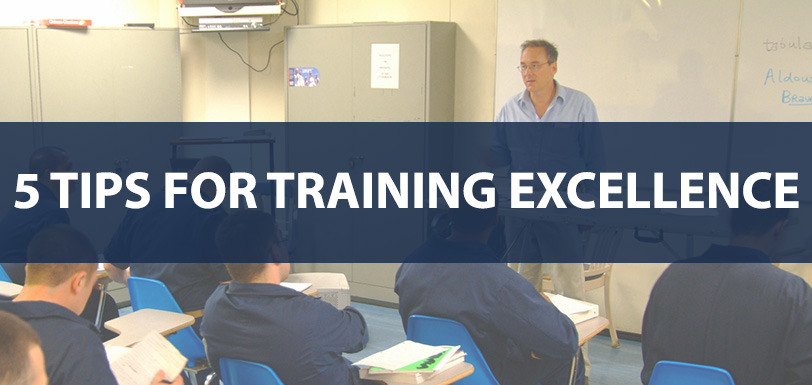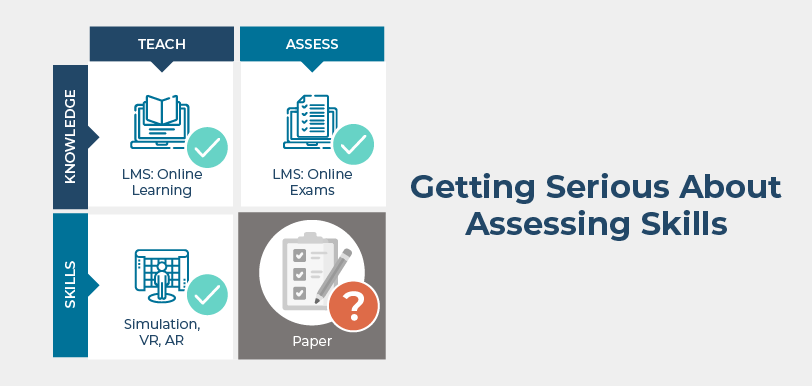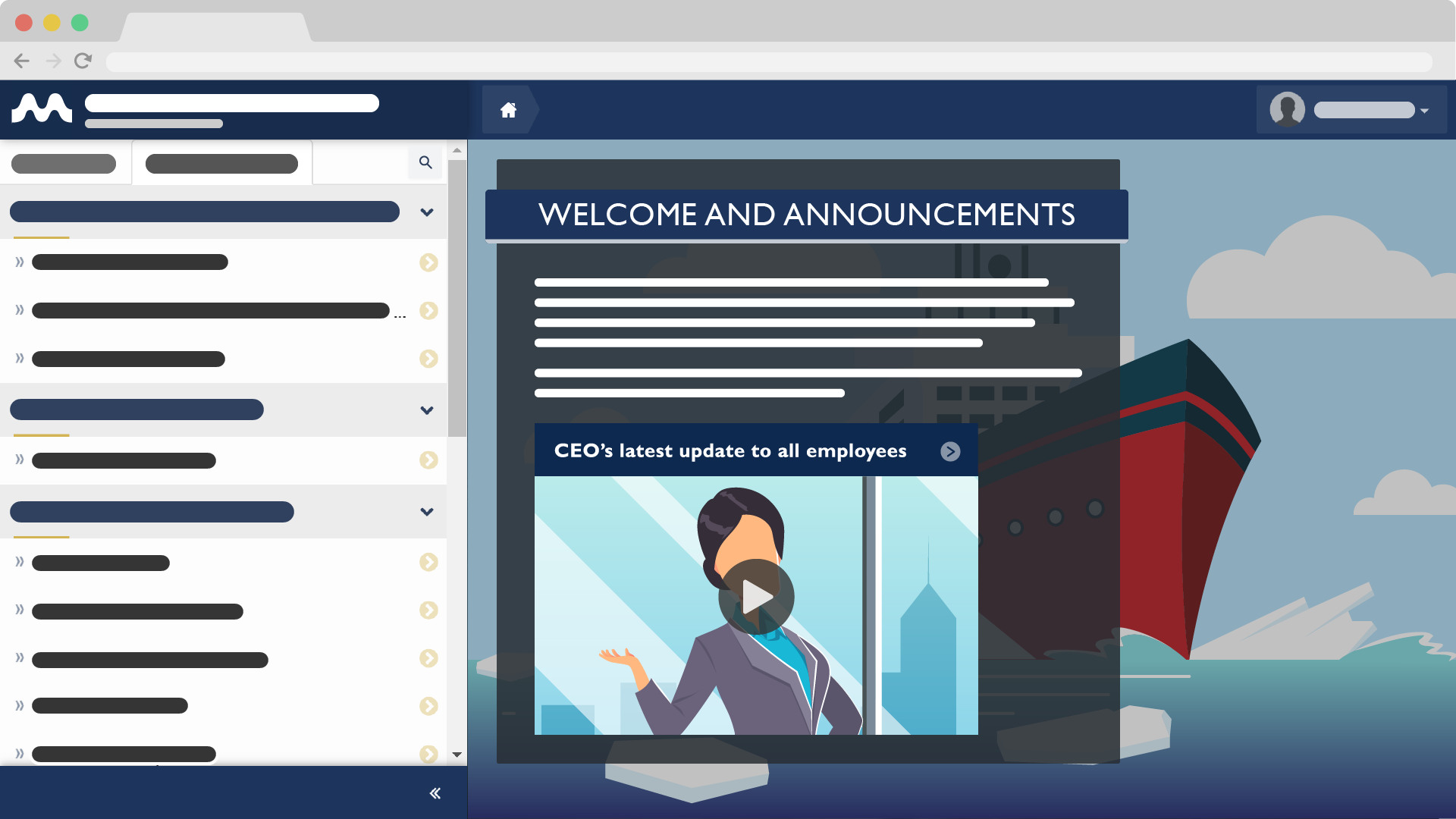Five Tips for Excellence in Maritime Training
Jun 15, 2016 Murray Goldberg 2 Maritime TrainingIntroduction
There is debate on whether maritime instructors should be required to take training on effective teaching and assessment techniques. Some argue that the industry is over-regulated, while others feel that the quality of training is critical to the maritime industry and instructor training should be better defined and mandatory. Despite the diversity of opinion on this subject, most agree on the positive impact training can have for instructors in making them better maritime teachers and assessors.
As a former faculty member at a large university, I have attended many seminars designed to help me teach more effectively and have received many bits of good advice on the subject. Whether or not this has made me a good instructor I’ll leave to my past students to comment on. However, I have picked up some excellent advice from outstanding instructors along the way, and in this blog post I’d like to share a bit of that advice with you.
I encourage all of you to do the same. Talk about teaching with others. Share the techniques that work for you, what you’ve found effective and what your trainees respond to. Because with a little bit of knowledge and passion, we can all become better instructors.
So let me start the ball rolling by sharing 5 tips which I feel have improved me as an instructor:
Tip 1: Listen before you talk.
When training a new group of learners, before launching into training activities, I have always found it important to get to know the group a little. This is partly to break the ice and create a comfortable atmosphere, but mostly to find out what they know and don’t know. This is critical information for pacing your training session and adapting it to the existing knowledge that the current group of trainees has.
Ask questions about their backgrounds and their experience with the topics at hand to see where they stand on the subject. When one trainee offers their answers, ask the others to see if they share the same knowledge and experience. Be sure to acknowledge what they know and what they have yet to learn. This helps them understand that the training is about them and about their needs – and that you will accommodate them as individuals. The same technique of listening before you talk should be employed every time a new topic is about to be covered.
I have found that these initial conversations very useful. They enable me to ask the more experienced students to provide their perspective for the others to learn from. It helps me create compatible groups for group exercises. And it helps me get to know each of them a bit to make the connection more personal. Moreover, it is simply very enjoyable to connect with each of my students this way.
Tip 2: You’ve listened, now it’s OK to talk (a bit).
There are a few qualities that every good lecture possesses. For example, lectures need to be:
- engaging,
- relevant,
- brief,
- mixed in with other complementary learning activities,
- and delivered with passion for the subject.
Most importantly, there are two parts to every great lecture: “what” and “why”. Everyone delivers the “what”. Many people miss the “why”. This is a mistake.
When I lecture, I try to make sure that every bit of knowledge is presented along with an argument about why it is relevant to the learners in their professional lives. If it is not clear to trainees why they should care about that information, most of it will be ignored. On the other hand, if they truly believe the information is important to their daily lives as mariners, I have found that students will listen (and therefore learn) with intensity.
The point here is to motivate your learners. Motivation is a powerful catalyst to learning and is directly correlated with how well people learn. Although some trainees will arrive pre-equipped with motivation to learn, most will not. They will be there because they are required to maintain a certification or to fulfill a job requirement. But most of what you teach is very relevant to their work – they just need someone (you) to connect the dots for them. As their instructor, conveying the information is only half the job. The other half is to ensure they know WHY that information is important. Simple, but powerful.
Tip 3: You’ve started lecturing, now stop!
People learn much better when different techniques are combined in training. Lecturing alone will never be as successful as lecturing combined with exercises, discussions and demonstrations.
When I teach, I always ask one or more students to come up to the front and demonstrate some concept that we are covering. This has the effect of engaging the students. It helps me understand how effectively the students have learned the knowledge or skill. This also makes their learning relevant and real, and gives them “memory tags” to which their knowledge can be attached, thus improving their retention.
When teaching, try to ask questions to stimulate discussion. Questions are an additional way to determine how effectively the students are learning. It engages the class and, frankly, makes it a much more interesting experience for both the instructor and the students. By asking the right questions, you can also help lead the students to discover why the topic is important for them to know. In fact, asking “why is this important” is a great way to begin a discussion.
Tip 4: Be a story teller.
You have experience your students care about. Share it with them. Tell them stories from your own experience at sea that everyone can learn from. People crave real-world stories. They will be engaged listeners, and they will easily draw lessons from the stories. If your stories are well chosen, they will always illustrate why the topic being presented has been important to you as a mariner. Stories are powerful learning tools and if you think about it, you’ll realize you have many to share.
The stories don’t always have to be your own. Another powerful teaching tool is the presentation and analysis of disasters. This can help increase motivation by illustrating how knowledge can save lives. They make the possible consequences real in a way that no amount of explanation ever can.
Tip 5: The tip of all tips – passion.
As a parent, I have always known that I will be imperfect (I realize we are talking about teaching – go with me on this). I will make parenting mistakes which will have negative effects on my children. I try not to, but I know I will. However, I have always felt that despite whatever mistakes I make, if I always make sure they know how loved they are, then this will overcome almost any mistake made. I believe that there is a parallel in teaching.
As an instructor, I am also sure I will make mistakes and will be imperfect. Maybe I will go too fast, not be as prepared as I could be, or present a topic in a way that tends to confuse. However, I believe that if I always express my passion for the topic I am teaching, it will diminish the effect of all the mistakes I am sure to make.
Passion for the subject being taught is an attribute of every great teacher. And I would argue that one cannot be a great teacher without it. I’d even go one step further to say that if you do not have passion for a subject, it is probably best that you do not teach it. Teach the stuff you love, and stay away from the rest.
Passion is contagious. If you truly have love for the topic you are teaching, I assure you, it will come out in your teaching. It will come out in your words, in the way you talk, in how you interact with your trainees, and in how you tell your stories. Your passion will become your student’s passion, and they will, indeed, learn from you – both the information and the passion for it. Of course the opposite is also true. If you find the course topic uninteresting, I guarantee that your students will learn that from you as well.
Conclusion
We have all heard the opinion that great trainers are born, and that no amount of training can make a great trainer out of one born mediocre. There may be some truth to that, but I would present it somewhat differently. I believe that some people have great love for a subject – and those people are often great teachers simply because they possess that passion. Likewise, without passion for a topic, no amount of training can make an instructor great. However, instructor training can make a good instructor better, and a passionate instructor a master teacher.
Good day, thanks for reading, and if you have not already done so and would like to receive e-mail notifications of future articles, please subscribe to the blog below.
Follow this Blog!
Receive email notifications whenever a new maritime training article is posted. Enter your email address below:
Interested in Marine Learning Systems?
Contact us here to learn how you can upgrade your training delivery and management process to achieve superior safety and crew performance.







When I teach a “trainee” or apprentice pilot, I have always tried to embrace every point you list here.
But until I read it, I didn’t know. Now that yo have written it down … it has hit me as the “Ah Ha!” moment.
Thanks. Great list.
A very good edifying article, which every Maritime trainers should get familiarized to adopt, methodologically to persuade in their profession, that is, teaching.